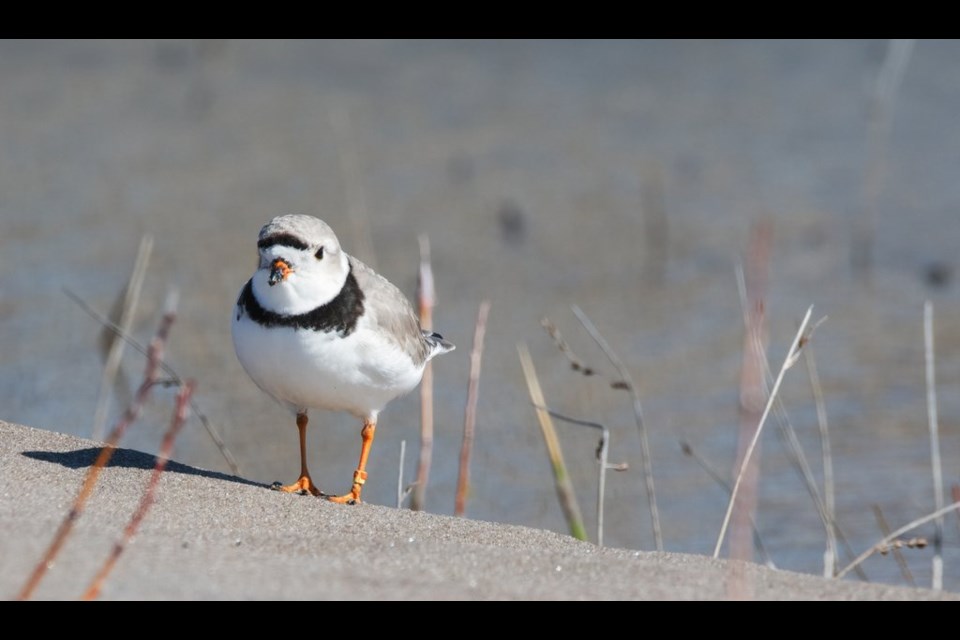Area residents are being asked to help out a couple of fine-feathered friends here for a beach stay.
Piping plovers, an endangered bird on the federal endangered species list, are again setting up digs on Georgian Bay beaches in Tiny Township and Wasaga Beach.
“The birds are starting to arrive, they’ll usually lay eggs around mid-May,” explained Andrea Gress, Ontario piping plover program coordinator with Birds Canada/Oiseaux Canada.
“The main nest site in that area is Wasaga Beach, but we’ve also had nests in Tiny Township for the last two seasons. With lower water levels, it’s likely that they’ll continue to nest in the Tiny Township.”
With only 8000 piping plovers left, they need all the help they can get, according to Gress.
To that end, the public is asked to report sightings to Birds Canada at [email protected] so that proper protection measures and monitoring can be put in place.
“They are very endangered, and it’s always special to see them nesting wherever they end up,” Gress said, noting the birds only breed in Canada and the United States.
“Last year, they nested at Wasaga Beach, Woodland Beach, Toronto Island, Sauble Beach and Darlington Provincial Park. We had only seven pairs in the entire province in 2020, and only 64 pairs across all of the Great Lakes.they only breed in Canada and the United States.”
The birds lay their eggs by mid-May with the eggs hatching after a month.
“So they’re usually hatching around Father’s Day weekend,” Gress said. “Then the chicks take three to four weeks to learn to fly, but they can walk right away. Then they begin migrating south around mid-July to early August.
And like many other species at-risk, the fact there are so few piping plovers left in the world can be directly attributed to humans, according to Gress.
“The reason these birds are endangered is primarily because of habitat loss from human activities,” she said, noting developing coastal areas, poor beach management, beach recreation by the tens of thousands play a part.
“So helping to protect them is very important, since we’re the reason they’re not doing so well. Plus, it’s easy to help them.”
Once a nesting area is identified, all nests will be fenced off and people are not allowed to enter.
“If you see a plover outside of the fenced area, give them plenty of space,” Gress told MidlandToday. “They need to be able to rest and forage safely.”
She said it’s also important not to let dogs disturb the birds, adding: “Don’t feed the wildlife, and remove all trash and food from the beach when you leave.”
